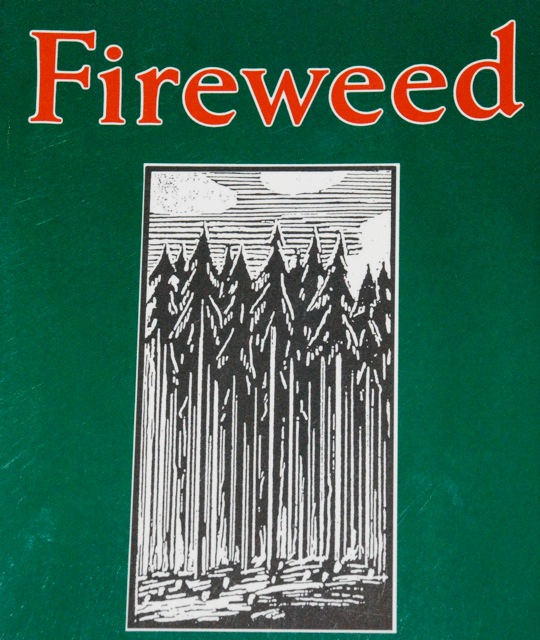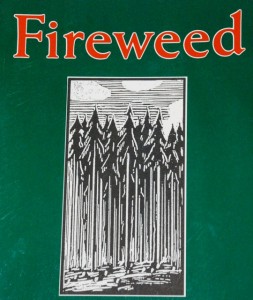Who doesn’t like hearing about a “good read� Check out our new monthly book review section. This month features Kathy (Mrs. Roger) Friesen of Henderson who submitted her “good read†recommendation of Fireweed by Mildred Walker. We are looking for volunteer contributors for our “Good Read†section, so if you are interested please contact us.
Celie Henderson is the daughter of Swedish immigrant parents, Ole and Christine. They live in a small mill town named Flat Point, in the thumb of Michigan along the east shore of Lake Superior. Each day is lived within the confines of a mill town ordered by the shrill whistles of the day, early morning, time to go to work; 11:30, time for dinner; and at 5:30 the men are released to trudge up the hill to their homes and families. There are only three streets in the mill town. The identical gray weathered cracker box houses line the streets from the bottom, near the edge of the lake up to the edge of the cut forest. Set in the 1920’s, there aren’t many options for the young who yearn to “get out of the sticks.â€
Celie sees the town and its occupants with a critical eye as she trudges down the muddy hill to the store. Instead of sensible boots, worn by the more practical citizens of her village, Celie wears only opera shoes (silk pumps) and chiffon hosiery. A teenager yearning for more, Celie works at the general store owned by the mill. She enjoys her job at the store, where she stacks fruits and vegetables which come in once-a-day on the train. The women of Flat Point, having finished most of their daily chores by 2:30, come to get the mail, also brought by the train, to find out what’s new in town. They buy an item or two for supper. Each of them is eager for something more, but resigned to life in this logging camp. Receiving the Sears catalog is akin to a visit in Paris for the Flat Point women in their long flannel skirts.
Celie has her eyes on Joe, a dark-haired Finn, whose father is also an immigrant. Coming home at noon Celie is expected to help Mrs. Henderson serve the three Swedish loggers, who pay her a dollar a day, for bed and board. Celie hates the mound of dishes she faces twice a day. She hates the heavy meat and potato meals produced by her mother. Much as she hates doing the dishes after dinner, she looks forward to seeing Joe at each meal, as he is one of Christine’s boarders. Someday her life will be better than her mother’s, she muses.
When Art Farley, the nephew of the mill owner arrives in town, from Detroit, Celie takes interest in him, as he takes his place at Christine’s table. Tension grows between Joe and Celie, as Art regales her with tales of life beyond Flat Point, tempting her taste buds for a better life. Celia’s thoughts drift to last night when she and Joe went to the movies. They will be different; they will get out of Flat Point someday and live a real life, with movies, fine stores and other women in high heeled shoes and chiffon stockings.
When the mill closes, what will the residents of Flat Point do? Will Joe and Celie leave? This universal human condition is what Walker writes about most vividly in her first novel. Written in the 1920’s and yet to face the depression of the 30’s, will Walkers character’s “stay put†in Flat Point, making a life with very little? Or will they move on looking for something better?
Walker deftly uses Fireweed as a metaphor for Celie. Fireweed, a wild flowering plant, grows best in disturbed ground, where it can reseed itself. It grows to seven feet and flowers bright pink. It thrives in a ghost town on the road to Clarion, the next larger town. Will fireweed fill the barren neglected foundations in Flat Point, someday, when it is deserted?
Two other books, written by Walker, which you may enjoy, are Winter Wheat, set in remote Montana, where a young woman takes her first job away from home, living in and teaching students in a rural school; and The Brewers’ Big Horses, in which a young widow is left to make a life for herself and her sons in a brewery with Prohibition looming on the near horizon.



































